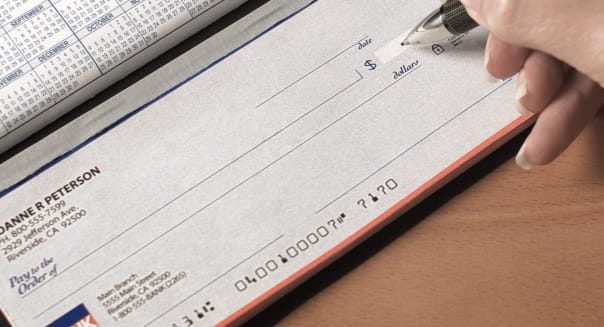Every Type of Check Fraud You Have to Worry About

About a decade ago, the most common money transactions were done with cash or checks from a checking account. In fact, checkbooks were so common that fashion trends actually involved them, from designer checks to checkbook covers. Now, checkbooks are the VHS to Blu-Rays. They are still used, but not as frequently. And because of check fraud, that is a very good thing.
Types of Check Fraud
The danger of personal checks is that one single check can contain your whole financial story: name, address, bank name, checking account routing number and account number. With this information, anyone can take over your account or purchase items with your money.
As Frank Abagnale, the infamous check forger who inspired the film “Catch Me If You Can,” explained to U.S. News: “If I write a check at Walgreens (WBA) or CVS (CVS), I’m leaving that check behind with the clerk. And on that check is my name, address, phone number, my bank’s name and address, my bank account number, routing number, and my signature. And if that store clerk writes down my driver’s license on the front of the check, in nine states — including the one I live in — that’s my Social Security number, too. Then, next to it he writes my date of birth. … Anyone who sees the front of that check has more than enough information to draft on my bank account.” Here’s how frauds could materialize:
- Online spending. Many websites allow for the purchasing of items with your bank’s name, routing number, account number and billing address. Many sites do not verify the true identity behind these accounts.
- Account takeover. Account takeover happens when a thief gets hold of your financial information, changes the mailing address and wipes your bank account clean before you even realize a cent is missing.
- Check washing. Check washing means referring to removing the ink from the checks, allowing the thief to write in her own amount. If you do not have the means to prove that you never wrote the stolen check, then you could be out of luck and out of money.
Checks Can Make You a Danger to Yourself
Carrying checks also poses a danger to your own finances. Since checks can be used to pay for items at the time they’re written, you do not necessarily need to have the money in your account at that time.
Known as “paperhanging,” writing a check when you know you don’t have the money — and hoping to have a bigger balance by the time the check finally clears — is also a type of fraud and can lead to bounced checks, bank overdraft fees and other charges.
How to Protect Yourself From Check Fraud
The best way to protect yourself from the dangers personal checks pose is to stop using. Learn how to pay bills online through your bank account, which is more safe and secure than sending a check, a lot less time consuming and saves on postage costs. I even pay my tithing to my church online; I just enter in my church’s information and address, and my bank sends them a check every time I pay.
If you insist on writing a check, do so to only secure and trustworthy individuals and companies. Mail them in a secure manner or hand-deliver them. Also, be sure to use a gel pen or to have your check printed to avoid possible check washing practices. Uni-Ball pens are designed to bleed into paper so that the ink cannot be washed away by chemicals.
[source : dailyfinance.com]
